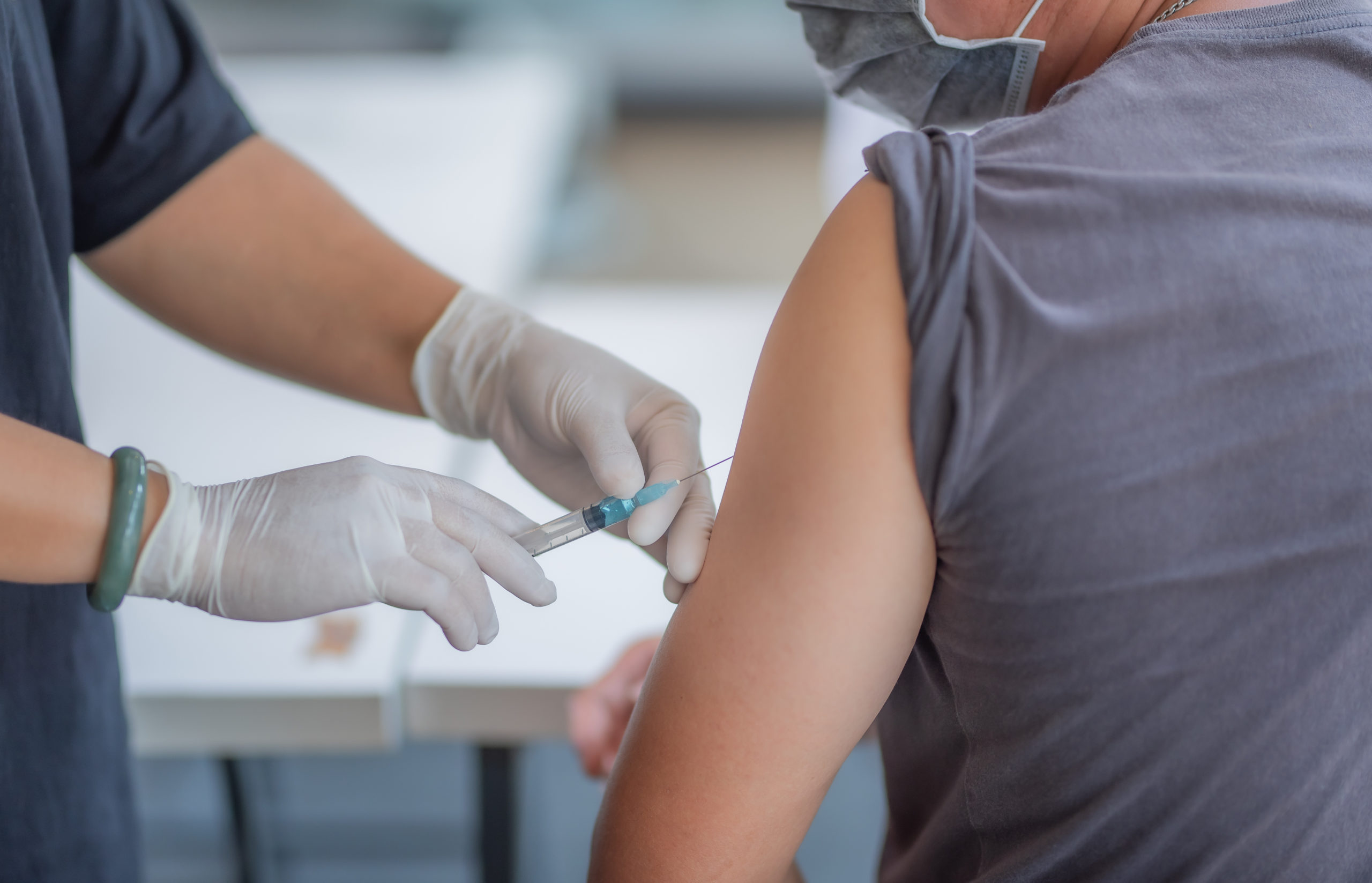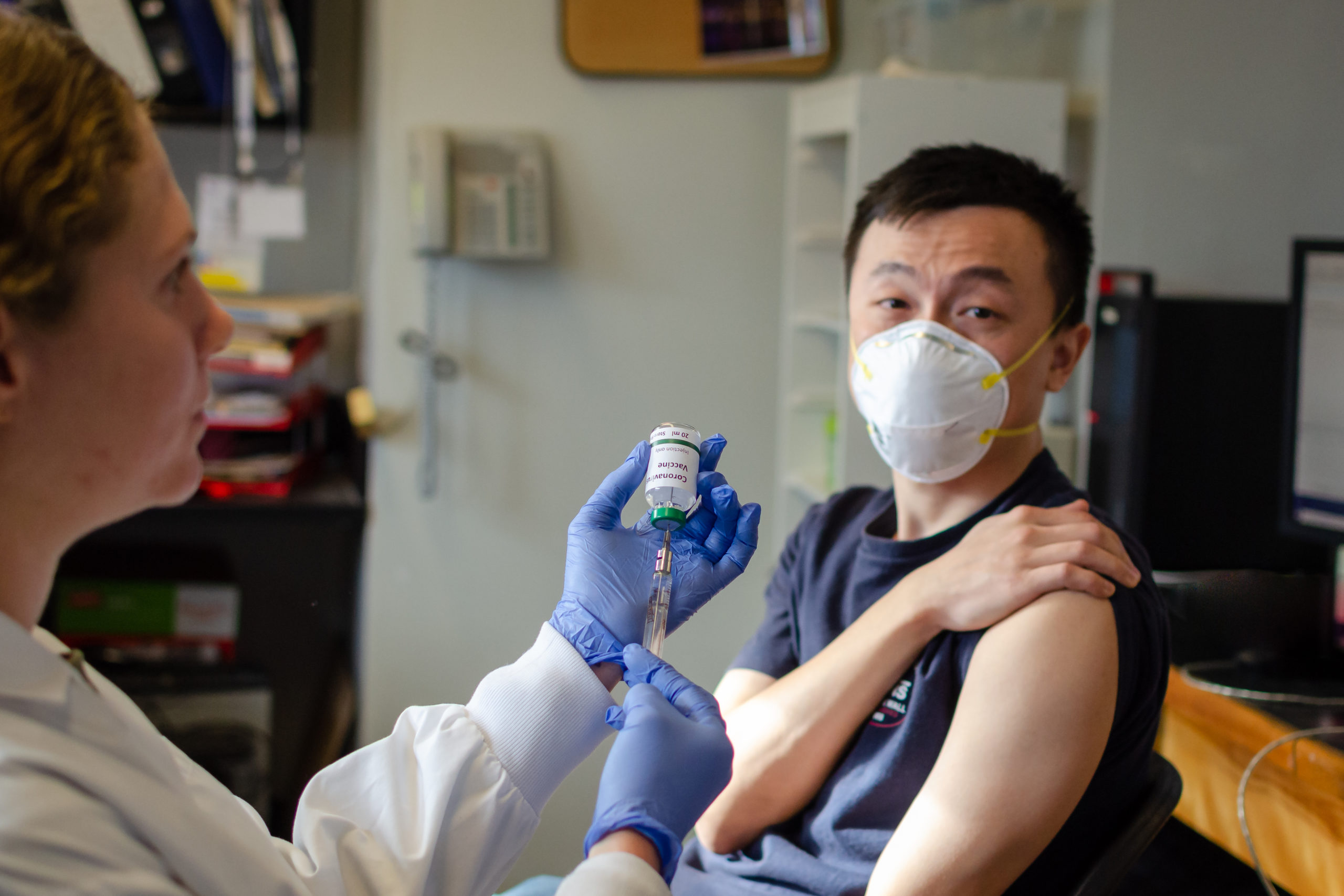COVID-19 entered the United States in 2019. Today, the virus is a global pandemic that has contributed to millions of deaths worldwide and shutting down economies worldwide. However, the virus is getting under control because of the COVID-19 vaccine, including helping to fight the COVID-19 Delta variant. Unfortunately, myths, mainly spread on the Internet, have prevented some people from getting the vaccine. Here are the top 6 reasons for not getting vaccinated that don’t hold up.
Myth #1 – The Covid-19 Vaccine Creates Long Term Side Effects
The first myth we need to put to rest is the belief that the COVID-19 vaccine results in long-term side effects. The vaccines were created and tested in clinical studies since March 2020. Therefore, the vaccines have been out and administered for over a year.
It is normal for some people to have short-term side effects the first 24 and 48 hours after a shot. The medical term for this is “reactogenic.”
The Johnson & Johnson is a one-shot, but the Pfizer and Moderna involve two shots, received at different times. With Pfizer and Moderna, side effects are more commonly reported after receiving the second shot. Common short-term side effects after taking the Pfizer, Moderna, or Johnson & Johnson vaccines include headaches, moderate fevers, and muscle and joint pain.
However, when it comes to long-term side effects, if there are to be long-term effects of a vaccine, they will appear within the first three months.
Few of the vaccines on the market have been pulled from the market, even five or ten years down the road, due to long-term side effects. One of the vaccines that was temporarily pulled was the Johnson & Johnson vaccine, also known as Janssen. This is because six cases across the country resulted in a rare and severe blood clot. During the pause, the vaccine went through a comprehensive safety review. After this review, they determined the vaccine is safe and could resume being administered.
As we mentioned, the long-term effects of a vaccine typically occur within the first three months. Yes, the long-term side effects of the COVID-19 vaccine are still being studied. However, nothing has been observed other than the six cases reported with Johnson & Johnson, which was rectified.
Those who have contracted COVID-19 have experienced long-term health conditions in addition to death. Long-term side effects of COVID-19, also known as “Long COVID,” include difficulty breathing, fatigue, joint pain, muscle pain, chest pain, depression, anxiety, etc. You risk more by not taking the vaccine than taking the vaccine, especially because no long-term side effects have been reported with the vaccines to make them unsafe.
Myth #2 – The Covid-19 Vaccine Causes Infertility in Women
Misinformation significantly contributes to myths about Covid-19, and the majority of the misinformation comes from social media. One myth that spread is that the vaccine causes infertility in women.
The truth is that there is no medical or scientific record that the vaccine interacts with a female’s reproductive organs or interferes with an egg that is released or fertilized. Furthermore, no data exists that the COVID-19 vaccine causes infertility.
How did the myth develop on social media? First, the vaccine prompts our bodies to make copies of the coronavirus’ spike protein. The copies instruct our body’s immune system to recognize the natural spike protein to fight the virus if we are infected. The myth is that the spike protein is similar to the Syncytin-1 placental protein and that the COVID-19 vaccine causes a pregnant woman’s immune system to fight the Syncytin-1 placental protein, which would harm her ability to stay pregnant. This is not supported. Other human coronaviruses or common cold viruses have spike proteins. Still, they do not cause infertility, and the millions of pregnant women who have gotten the COVID-19 vaccine have not run into the problem.
What is important to keep in mind is that there is a danger to pregnant women who contract COVID-19. Pregnant women who contract COVID-19 get more ill than people their age who contract the virus, and they are more likely to go through preterm delivery.
Myth #3 – Vaccines Turn Humans Into Hybrids
One of the wilder myths is that the COVID-19 vaccine, which uses messenger RNA, otherwise known as mRNA, turns humans into hybrids or alters their DNA. In other words, people who get these vaccines are no longer human. This is another myth born on social media from a video shared but has now been deleted. The video presented Dr. Andrew Kaufman, a “natural healing consultant,” and Spiro Skouras an “online-personality” and “independent researcher” who made the claim. Both personalities are anti-vaxxers, many of whom spread false information to generate mistrust and confusion.
The truth is that the vaccines from Pfizer and Moderna (the ones in question) inject a small amount of mRNA into a recipient’s body. However, it’s broken down shortly after the vaccination and does not stay in the body.
Myth #4 – They Developed the Vaccine Too Fast to Be Safe
Another vaccine myth is that they developed it too fast to be safe. In other words, there weren’t enough clinical trials to make the vaccine safe, in addition to the fact that as of August 2021, they are not FDA approved.
The fact is that there were tens of thousands of participates who were followed for two months after they received their second dose. This approach is common with vaccine trials.
With Covid-19, the results of the study were not only reviewed but also approved by a multitude of independent advisory panels. Because of the increased focus on collaboration among scientists, manufacturers, and distributors, new technology and increased funding has allowed the vaccine to be developed and administered quicker without compromising the safety, quality and effectiveness.
In addition, pandemics, such as SARS and MERS have been studied before COVID-19. This has given collaborators additional and important information for fighting current and future pandemics.
Currently, in the United States, only the government can distribute the three COVID-19 vaccines due to their being under Emergency Use Authorization and not being approved by the FDA. Therefore, the myth is further exacerbated by the fact that the vaccines haven’t yet been approved.
The fact is the three current vaccines meet the FDA’s solid standards for their safety and their effectiveness and manufacturing. Therefore, safety is not an issue even without current FDA approval. Getting the vaccines approved is now mainly based on logistical issues. The COVID-19 vaccines are under priority review by the FDA.
Finally, as we mentioned early, the safety of this vaccine is being monitored. So far, the vaccine is safe and has shown no serious side effects in the millions of people in the U.S. who have gotten the vaccine.
Myth #5 – I Can’t Afford the Covid-19 Vaccine
Unfortunately, people still believe the myth that because they don’t have insurance, they cannot afford the COVID-19 vaccine. The truth is that because the vaccine is under an emergency order, as we discussed earlier, and not approved by the FDA, the U.S. government is paying for the vaccine. Therefore, currently, these vaccines are free of charge to anyone in the United States. When COVID-19 is FDA approved, the government will no longer cover the cost of supplies. Patients and their insurance companies will be covering it.
Therefore, no medical professional or institution should be asking you to pay for the vaccine or ask you to pay administration fees, copays, or coinsurance. In addition, nobody who doesn’t have health insurance or is underinsured or out of network should be paying for the COVID-19 vaccine.
Americans also need to keep in mind that when the FDA approves the vaccine, it does not mean that it will no longer be free in all cases. Flu vaccines, for example, are often administered for free in specific neighborhoods. So it remains to be seen if the COVID-19 vaccine will no longer be free in any situation.
Myth #6 – I’m Young and Healthy, So I Don’t Need the Vaccine
Another myth spread is that if you’re young and healthy, you don’t need the vaccine. The fact is, even if you’re young and with no chronic health conditions, you should get the COVID-19 vaccine.
The effects of COVID-19 can negatively affect young, healthy people as well. You may have mild effects, but you could also have effects that are not only serious but also long-lasting. Furthermore, some young, healthy people who have contracted COVID-19 have died in extreme cases.
Another important consideration is that young people who contract COVID-19 can suffer from “long COVID.” Long COVID symptoms can last for months after the initial infection. The COVID-19 vaccine can keep young people healthy, including helping to keep them safe from the new Delta variant.





